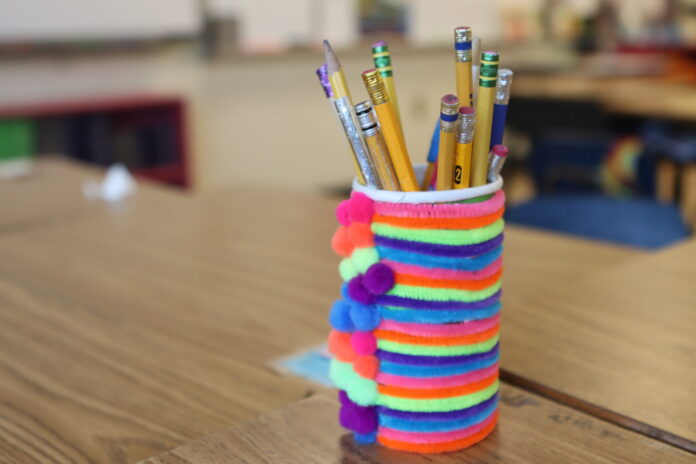After a year-long review of the Virginia Department of Education, which failed to meet federal requirements to support students with disabilities, the federal government’s watchdog for special education programs wrote in a letter that all of its findings and required actions for VDOE are now closed, although questions by education advocates linger.
Each year since 2019, the federal government found that Virginia’s education department repeatedly failed to resolve complaints filed by parents of special education students, and it did not have “reasonably designed” procedures and practices to ensure a timely resolution process for those complaints.
However, the state has taken the necessary steps to “address and resolve the findings of noncompliance and the required corrective actions” outlined in a March 13 monitoring report, according to a Dec. 5 letter from the U.S. Department of Education’s Office of Special Education Programs.
The federal agency indicated that no further action is needed after Virginia officials submitted documents highlighting corrective actions, including providing quicker feedback to school divisions and ensuring that all entities rather than LEAs, or school divisions, listed under the “public agency” definition are following the due process procedures.
Virginia has nearly 181,000 students with disabilities. As federal law requires, Virginia must provide all students with disabilities a “free and appropriate public education” through personalized plans under the Individualized Education Program (IEP).
In its letter, OSEP said that “having a consistent and transparent system for identifying and correcting noncompliance, particularly noncompliance that impacts the delivery of early intervention services, in accordance with individualized education programs (IEPs), and dispute resolution systems that protect the rights of parents, are essential elements to ensuring improved results for children and youth with disabilities,” and acknowledged Virginia’s “continued efforts” to better implement the Individuals with Disabilities Education Act (IDEA) Part B and to put in place “a reasonably designed general supervision system which ensures compliance and improving results for students with disabilities.”
VDOE’s corrective actions
In response to the compliance issues facing students, VDOE announced in October 2023 the formation of a workgroup to help develop the 2024 Roadmap for Special Education and a team that reports directly to the superintendent of public instruction to monitor how school divisions provide special education services and assist them as needed.
Around the same time period, VDOE also created a system to oversee the development and use of IEPs for students with special needs. Educators are required to undergo additional training on providing inclusive special education instruction.
Virginia adopts regulatory changes for special education amid federal review
The Virginia Board of Education also adopted regulatory changes to how the state handles compliance complaints regarding students with disabilities and dedicated funds to examine the dispute resolution system.
“Since day one, Governor Youngkin has prioritized the success of students with disabilities and I am pleased that the U.S. Department of Education has recognized the hard work VDOE has done to improve our work for Virginia’s children with disabilities,” Superintendent of Public Instruction Lisa Coons said in a statement.
Concerns, funding
While she has not reviewed the documents the state’s education department submitted to federal authorities, special education advocate Kandise Lucas said she was concerned with the “accuracy” of those documents, specifically concerning the policies and procedures, and independent evaluations based on her recent interactions with schools, parents and students, one of whom she said has been out of school for three years.
“I just have a real concern that … the Board of Education submitted those documents knowing that they’re not complying with the law, specifically as it pertains to independent evaluations, which was a major issue,” Lucas said.
She questioned if VDOE is following the federal agency’s summary contained in the Dec. 5 letter, which requires the commonwealth to issue a memorandum or other directive to all local educational agencies (LEAs), parent advocacy groups, and other interested parties advising them of the proposed changes to state regulations and complaint procedures.
Lucas said some hearing officers, who review parents’ complaints, have yet to hear of the changes.
She also voiced concerns about the state refusing to enforce its regulations in school divisions about parents’ right to access educational records promptly under the Virginia Freedom of Information Act. Another worry is VDOE refusing to enforce hearing officer orders and state complaint determinations well beyond a year after the compliance requirement.
Carol Bauer, president of the Virginia Education Association, said in a statement that Gov. Glenn Youngkin’sadministration’s actions are “temporary solutions” that don’t solve the main issue — the underfunding of special education student needs in the state.
Bauer claimed that since the governor was elected, actual state spending on special education students has continued to “erode” and led to “unmanageable caseloads and subpar parent and family engagement.”
Last year, evidence of underfunding schools was outlined in a study conducted by the Joint Legislative Audit and Review Commission, the state’s legislative watchdog.
JLARC found that the formula used to decide how much money schools need for teachers suggested fewer special education teachers than schools use or need.
For fiscal year 2023, the funding formula calculated that 13,300 special education teachers were needed, which was 93% of the number employed by school divisions and 66% of what practitioners estimated was required.
Lawmakers’ work to overhaul the funding formula could take a while. Short-term recommendations could be considered for the upcoming General Assembly session beginning in January.
This article appeared in the Virginia Mercury and was re-published under the Creative Commons News sharing agreement.
NEWSLETTER SIGNUP
Subscribe to our newsletter! Get updates on all the latest news in Virginia.



